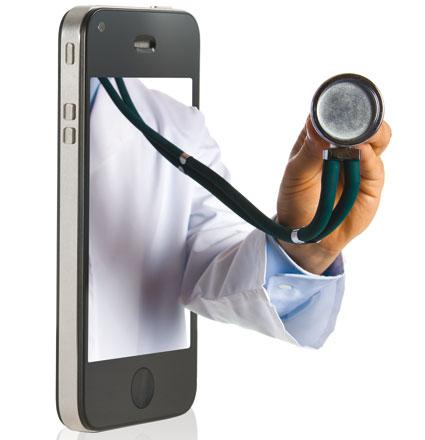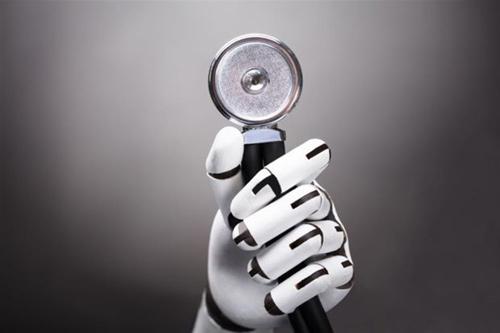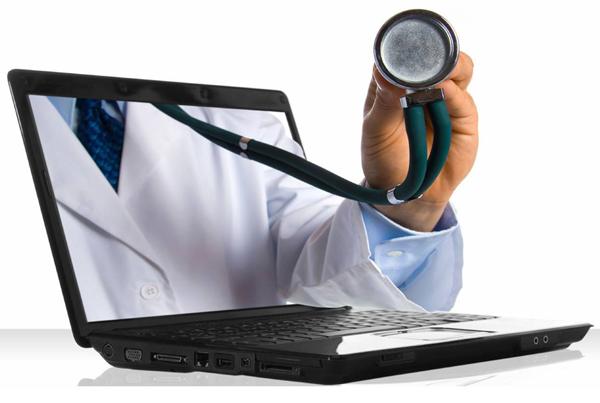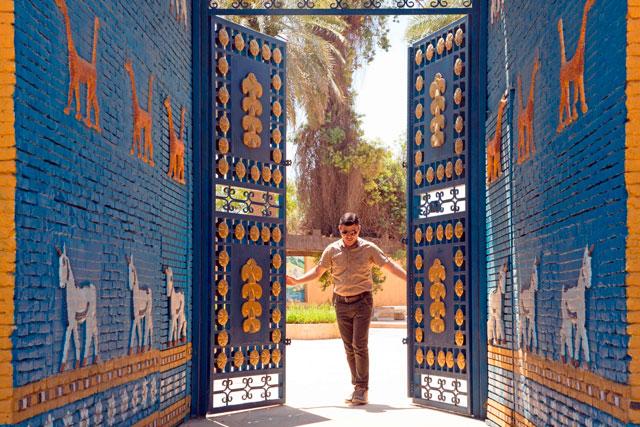You are here
Feeling sick and poorly? This app will see you now
By Reuters - Jul 05,2018 - Last updated at Jul 05,2018

Photo courtesy of gizmodo.com
LONDON — London-based Babylon Health says its artificial intelligence (AI) technology, in tests, has outperformed most physicians in assessing disease symptoms, throwing down a challenge to doctors, some of whom doubt its true abilities.
Babylon, which was founded by entrepreneur Ali Parsa in 2013, is one of a number of start-ups tapping into the promise of artificial intelligence (AI) to help patients and doctors sift through symptoms to come up with a diagnosis.
It aims to offer health advice of family-doctor quality by using AI delivered through a smartphone chatbot app — potentially a big saving for governments as they struggle to fund healthcare for growing and ageing populations.
In a representative sample of questions set by the Royal College of General Practitioners (RCGP) for its final exams to qualify as a family doctor, the Babylon app achieved an 81 per cent success level, well ahead of the average pass mark over the last five years of 72 per cent, the company said.
But Martin Marshall, vice chairman of the RCGP, said AI systems could not be compared to highly-trained medical professionals.
“No app or algorithm will be able to do what a GP does,” he said.
“An app might be able to pass an automated clinical knowledge test but the answer to a clinical scenario isn’t always cut and dried, there are many factors to take into account, a great deal of risk to manage, and the emotional impact a diagnosis might have on a patient to consider.”
Babylon showed off its AI technology in a public demonstration on Wednesday evening.
In a separate test against seven highly experienced primary care doctors, Babylon’s AI correctly diagnosed 80 per cent of illnesses, against a range of 64-97 per cent for the professionals, it said.
Parsa said the results demonstrated Babylon’s AI could help bring healthcare to millions of people who have no access to even basic services, adding he was “saddened” by the criticism as the app was never designed to replace doctors.
“Even in the richest nations, primary care is becoming increasingly unaffordable and inconvenient, often with waiting times that make it not readily accessible,” he said.
“Babylon’s latest artificial intelligence capabilities show that it is possible for anyone, irrespective of their geography, wealth or circumstances, to have free access to health advice that is on-par with top-rated practicing clinicians.”
Malcolm Grant, chairman of the state-funded National Health Service (NHS) in England, said the service was looking at a range of new technologies, including AI.
Underscoring the pressure on costs, the British government this month announced an extra £20 billion ($26 billion) a year for the NHS by 2023, but critics said that still wouldn’t be enough to keep up with demand.
Babylon, which secured a $60 million investment last year, is working with smartphone maker Samsung and Chinese Internet firm Tencent to roll out its technology. Rival AI health apps available in the UK include Ada and Your.MD.
Smartphone diagnosis is only one way in which AI is being harnessed in healthcare.
Elsewhere, medtech companies are already using the pattern-spotting power of computers to help interpret medical images, while many drug companies are increasingly investing in AI-driven techniques in drug discovery.
Babylon’s app is allowing users in London to book NHS appointments with family doctors in seconds, it said, and have a video consultation typically within two hours.
It is also helping more than 2 million people in Rwanda access digital healthcare, which it said gives the East African nation the highest penetration of digital health in the world.
Related Articles
PARIS — An artificial intelligence (AI) programme developed in China that combs through test results, health records and even handwritten no
SAN DIEGO — Is healthcare going the way of Uber?Though it may sound far-fetched, seeing a doctor could move in that direction if telem
HILLA, Iraq — Babylon was once hanging gardens and opulent temples before parts were excavated and smuggled to Europe.

















